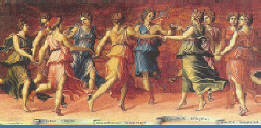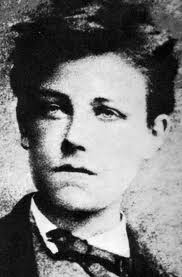|
|
Rimbaud was born in Charleville, Ardennes, to an army captain who deserted his family when Arthur
was only six years old. His mother brought up her children alone and insisted on strict moral
principles intended to obviate repetition of the father's shortcomings. Rimbaud showed precocious
talents in classics and literature stimulated by his teacher, Georges Izambard, and winning several
prizes for his school work.
His studies were interrupted in 1870 by the Franco-Prussian war during which he twice absconded
from school. After the abdication of Napoleon III, he lived a homeless existence in Paris for two
weeks. He was later invited by Paul Verlaine, to whom he had sent some poems, including Le
Batteau Ivre, to share his home. Rimbaud's personality was unsocial, however, because he
deliberately sought to debase his personality in order to gain the insight for his poetry that he
maintained could be achieved only by transgressing the limits of accepted relations. His stay
with the Verlaine family was therefore of short duration.
Nonetheless, Verlaine left his recently celebrated marriage for Rimbaud with whom he formed a
relationship and they lived together for 18 months moving from France to Belgium and, briefly,
to England where they lived in penury in a union that became increasingly strained. Verlaine left
Rimbaud but subsequently pleaded for him to come to Brussels. Their association ended when
Verlaine, in a quarrel, shot Rimbaud in the wrist for which Verlaine was briefly imprisoned.
Rimbaud returned to Charleville and wrote Une Saison en Enfer but was unable to pay the
Brussels printer with the consequence that it remained unpublished until 1901.
In 1875, he ceased writing poetry in order to take various jobs of short duration in order to eke
out a living. His career became a turmoil of enlistment in the Dutch army and subsequent desertion,
stone quarry supervisor in Cyprus and, from 1881, a business manager in Aden subsequently
becoming a coffee merchant and arms supplier in Ethiopia. He fatally delayed his return to
France for medical treatment where, in 1891, he underwent amputation of a leg in an attempt
to limit the onset of cancer but died after further encroachment only 6 months later.
Despite his short period of poetic creativity, which was confined to his late teens, Rimbaud is
credited with being a major influence on his contemporaries and later poets in their adoption of
his themes and form.
|

